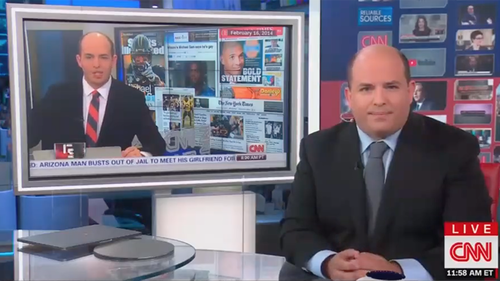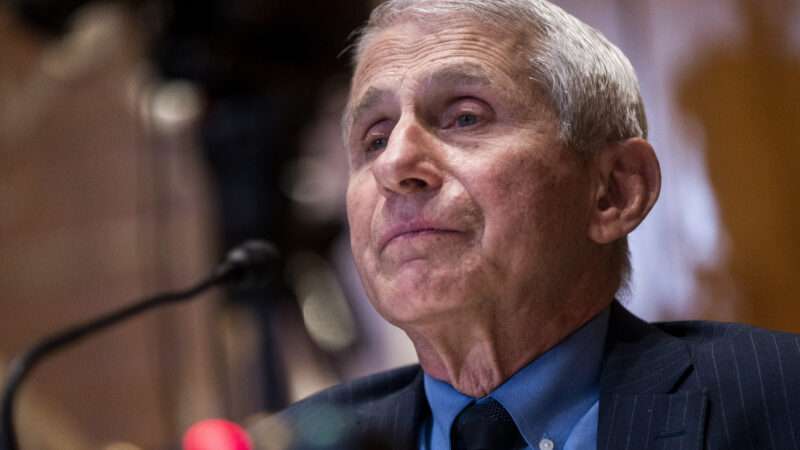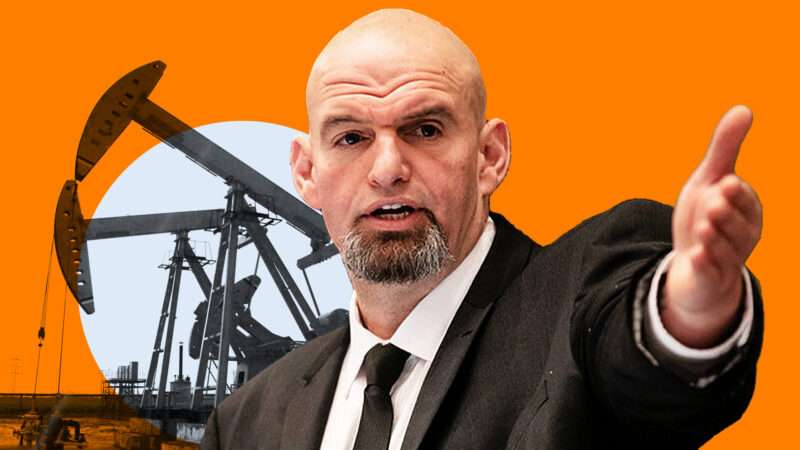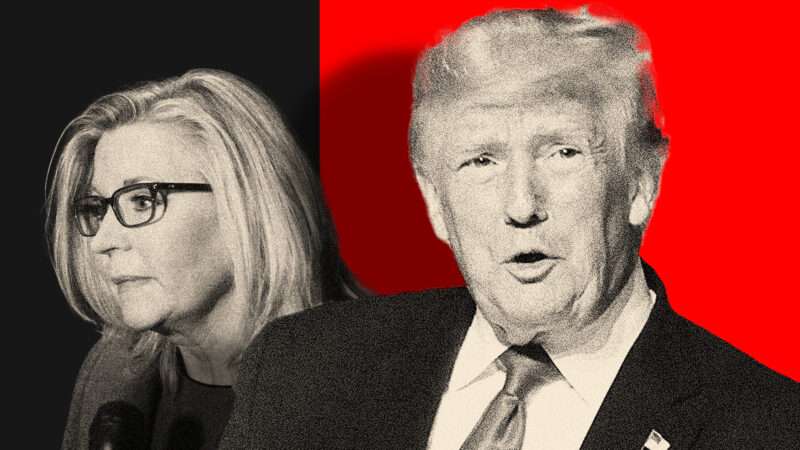Supreme Court Justice Clarence Thomas expressed dismay last year at the “contradictory and unstable state of affairs” created by the federal government’s “half-in, half-out” approach to marijuana, which “simultaneously tolerates and forbids local use.” A federal appeals court recently provided a striking illustration of that confusing situation by ruling that Maine’s residency requirement for medical marijuana suppliers amounts to unconstitutional protectionism.
Maine’s Medical Use of Marijuana Act, enacted in 2009, requires that the “officers” and “directors” of businesses that sell cannabis to patients be residents of the state. Those terms are defined broadly to include managers and anyone with an ownership interest, meaning that even stockholders must be Maine residents.
High Street Capital, a corporation registered in Delaware, wants to buy Northeast Patients Group, a business owned by Maine residents that operates three medical marijuana dispensaries. Because that deal would run afoul of Maine’s residency requirement, the two companies challenged the law in federal court, arguing that it violates the “dormant Commerce Clause,” a doctrine that forbids interstate trade barriers aimed at protecting in-state businesses from competition. Last year, a federal judge agreed, and last week a divided three-judge panel of the U.S. Court of Appeals for the 1st Circuit upheld that decision.
Kirsten Figueroa, who oversees Maine’s medical marijuana program as head of the state’s Department of Administrative and Financial Services, argued that the dormant Commerce Clause does not apply to illegal products. Figueroa, joined by United Cannabis Patients and Caregivers of Maine, noted that federal law classifies marijuana as a Schedule I controlled substance, meaning it has a high potential for abuse, cannot be used safely even under a doctor’s supervision, and has no recognized medical applications. Far from seeking to facilitate cannabis commerce, the Controlled Substances Act (CSA) aims to stamp it out.
Since Congress invoked its powers under the Commerce Clause to prohibit the cultivation, sale, and possession of marijuana, it might seem strange to claim that the same constitutional provision requires Maine to loosen its restrictions on those activities. But notwithstanding the federal ban on marijuana, Congress has repeatedly approved an annual spending rider, known as the Rohrabacher-Farr Amendment, that bars the Justice Department from interfering with the implementation of state laws authorizing medical use.
That restriction was one of the policies Thomas had in mind when he described the federal attitude toward marijuana as “contradictory.” The spending rider also figures prominently in the 1st Circuit’s decision, which was written by Chief Judge David Barron and joined by Judge Sandra Lynch.
The Supreme Court “has long construed the Commerce Clause to be not only an affirmative grant of authority to Congress to regulate interstate commerce but also a negative, ‘self-executing limitation on the power of the [s]tates to enact laws [that place] substantial burdens on [interstate] commerce,'” Barron notes. “The defendants do not dispute that Maine’s residency requirement, if applied to a lawful market, would [violate] the dormant Commerce Clause….We are not persuaded that the dormant Commerce Clause can have no effect in a market in which Congress has made participation criminal, including even one in which, as is the case here, Congress has barred enforcement of the federal criminal prohibition in certain respects.”
The majority rejected Figueroa’s contention that interstate commerce in contraband is a contradiction in terms. In the 2005 case Gonzales v. Raich, Barron notes, the Supreme Court ruled that the Commerce Clause authorizes Congress to ban state-authorized cultivation and possession of medical marijuana even when it is never sold and never crosses state lines. The Court’s reasoning (which Thomas rejected in a vigorous dissent) relied partly on the observation that marijuana is a “fungible commodity for which there is an established, albeit illegal, interstate market.” In other words, the Court took for granted the existence of an interstate marijuana market, which Congress was “regulating” through the CSA.
“The prohibition that Maine’s Medical Marijuana Act seeks to impose on out-of-state actors entering that very market reflects the reality that the market continues to operate,” Barron writes. “That prohibition even indicates that the market is so robust that, absent the Medical Marijuana Act’s residency requirement, it would be likely to attract entrants far and wide.”
The appeals court adds that the Rohrabacher-Farr Amendment “further undermines the notion that no such interstate market exists.” That provision, Barron says, “hardly reflects a congressional understanding that the CSA succeeded in eradicating the interstate market in medical marijuana.” He notes that Congress has included the same rider in every appropriation for the Justice Department since FY 2015, “reflecting the fact that over time more than half of all states have legalized the market for medical marijuana to some extent.” The amendment, Barron says, shows that Congress “contemplates both that an interstate market in medical marijuana may exist that is free from federal criminal enforcement and that, if so, this interstate market may be subject to state regulation.”
Since the Rohrabacher-Farr Amendment implicitly views access to medical marijuana as beneficial, Barron says, the potential harm to consumers from protectionist measures like Maine’s is constitutionally relevant. “Whatever the circumstances may be with respect to other goods that Congress has deemed contraband, this is not a case in which Congress may be understood to have criminalized a national market with no expectation that an interstate market would continue to operate,” he writes. “Quite the opposite. Congress has taken affirmative steps to thwart efforts by federal law enforcement to shut down that very market, through the annual enactment of the Rohrabacher-Farr Amendment. And it has taken those steps, presumably, with an awareness of the beneficial consequences that those steps will have for consumers who seek to obtain medical marijuana.”
Barron sees no evidence that Congress has approved marijuana protectionism, notwithstanding the CSA’s blanket ban. Far from aiding that law’s goals, he says, Maine authorizes conduct that it prohibits.
“Such protectionism does, of course, stop out-of-staters from entering the market,” Barron writes. “But, it does so only by simultaneously insulating in-state actors who do choose to enter that market from competition. It thus threatens, in the way that protectionist measures necessarily do, to encourage precisely what the CSA seeks to stop—trade by in-staters in the relevant market….While Maine’s residency requirement does limit some actors from trading in medical marijuana, it does so in a way that, due to its protectionist nature, in no sense ‘aid[s]’ the policy expressed by Congress in the CSA.”
Writing in dissent, Judge Gustavo Gelpí agrees that Maine’s residency requirement “incontestably constitutes protectionist legislation.” But he argues that “the ‘fundamental objective’ of the dormant Commerce Clause to preserve a competitive national market is inapplicable, because Congress has already outlawed the national market for marijuana.” As Gelpi sees it, “illegal markets are constitutionally different in kind” from markets in legal products such as wine or eggs.
“The law presumes the public interest is best served by maintaining an unencumbered ‘national market for competition’ in legal goods and services,” Gelpi writes. “However, it makes little sense to retain this presumption when Congress has explicitly acted to make the market in question illegal, because the premise that the dormant Commerce Clause enshrines…does not hold. The Commerce Clause does not recognize an interest in promoting a competitive market in illegal goods or services or forestalling hypothetical interstate rivalries in the same.”
In 2020, business immigration lawyer Jack Scrantom notes in a post on Harris Bricken’s website, Maine “issued policy guidance stating it would not enforce the residency requirement for cannabis licensees in the recreational marketplace.” The Maine Attorney General’s Office determined that the state was “unlikely to prevail” in defending that requirement against a dormant Commerce Clause challenge.
Such challenges have been successful in at least two other circuits. Last year, a federal judge in Missouri, which is part of the 8th Circuit, permanently enjoined enforcement of a state rule requiring that medical marijuana businesses be mostly owned by people who have lived in Missouri for at least a year. Also in 2021, a federal judge in Michigan, part of the 6th Circuit, issued a preliminary injunction against Detroit’s preferential treatment of “legacy applicants” for recreational marijuana licenses, defined by residence in the city for at least 10 years.
Scrantom says the 1st Circuit’s decision “may lead to more challenges of similar state cannabis regulations within the First Circuit as well as in other jurisdictions.” Marijuana Moment suggests the ruling could have “far-reaching implications for interstate cannabis commerce” and “could create possible complications for social equity programs.”
Vanderbilt University law professor Robert Mikos, an expert on marijuana federalism, says the same argument that doomed Maine’s residency requirement could be deployed against bans on importation in states that have legalized marijuana. “I think this is going to be the next shoe to drop,” Mikos told Marijuana Moment. “I see no way to distinguish licensing preferences from those bans on imports and exports. I think they’re equally vulnerable.”
The post 1st Circuit Says Maine's Residency Rule for Medical Marijuana Suppliers Is Unconstitutional Protectionism appeared first on Reason.com.
from Latest https://ift.tt/YwOBp6k
via IFTTT






